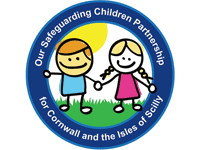


Safeguarding Children with Disabilities
Safeguarding Children with Disabilities – Multi-Agency Training
Level: Intermediate – Advanced
Format: Face-to-Face
Duration: 1 Day
Course Description
This specialist course explores the unique safeguarding needs and lived experiences of disabled children and young people. Designed for multi-agency professionals, the training challenges assumptions, builds confidence, and provides practical strategies to ensure disabled children are effectively safeguarded and their rights upheld.
Delegates will examine key risk factors, consider indicators of abuse in the context of disability, and learn how to ensure the voice of the disabled child is central to safeguarding practice.
Drawing on current legislation, reviews and the latest national guidance and research, the course will develop the ability of delegates to identify and respond to safeguarding concerns through a strengths-based, rights-informed lens.Through interactive case studies, reflection and peer learning the course supports delegates to develop their professional curiosity, challenge disguised compliance, and promote quality of life while managing risk.
Who Should Attend?
Professionals working with or responsible for the care and safeguarding of disabled children.
This would include staff from specialist disability provision, education, health, social care, early help, police and the voluntary sector.
Key Learning Outcomes
- Recognise the importance of safeguarding disabled children by understanding the specific vulnerabilities they face, including increased dependency, communication barriers and social isolation.
- Use respectful, inclusive language and demonstrate an understanding of appropriate terminology when working with or referring to disabled children and their families.
- Apply relevant legislation, statutory guidance, and learning from local and national child safeguarding practice reviews. Key legislation includes Working Together to Safeguard Children (2023), the Equality Act (2010), and the SEND Code of Practice, to inform and improve safeguarding practice.
- Explain and implement the social model of disability, adopting a strengths-based approach that focuses on removing barriers and promoting the full participation of disabled children in all aspects of life.
- Identify and interpret signs and indicators of abuse in disabled children, including physical, emotional and sexual abuse, neglect, and fabricated or induced illness (FII), recognising that these may present differently than in non-disabled children.
- Confidently respond to safeguarding concerns, including how to escalate issues appropriately, navigate thresholds and engage effectively with multi-agency partners and safeguarding procedures.
- Embed the voice of the child in safeguarding processes, including those who are non-verbal, using practical tools and techniques to listen, observe and communicate meaningfully.
- Develop and apply professional curiosity, exploring what life is like for the child and asking the right questions when something doesn’t feel right, even in complex care environments.
- Understand the unique risks of criminal and sexual exploitation affecting disabled children and how to identify early warning signs in different settings.
- Balance safety and quality of life, exploring how to manage safeguarding concerns without restricting a child’s development, independence or rights.
- Respond effectively to parental factors, including avoidance, disguised compliance, and decision-making that may place the child at risk, such as unmet medical needs or unsafe home environments.
- Understand the principles of restraint reduction and Deprivation of Liberty Safeguards (DoLS) and their application in supporting the safety and rights of disabled children in education, health and care settings.
Cancellation Charge
Please note that with effect from 1st November we will be introducing a cancellation charge of £75. This will apply to cancellations that take place 48hours or less before the start of the course or if you book a place but do not attend. If you are unable to use your place you can move to an alternative date or arrange for someone else to attend in your place but please email us at OSCPtraining@cornwall.gov.uk
to let us know.
Dates
June 2026
| Date |
Time |
Duration |
Location |
Places Available |
|
| 23/06/2026 |
10:00-16:00 |
1 Day |
St Erme Community Centre Truro |
Fully Booked |
Join Waiting List |